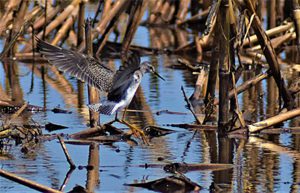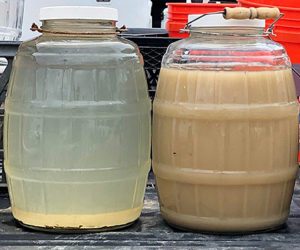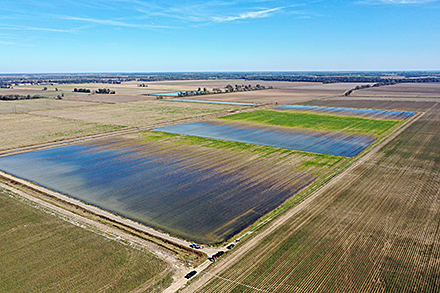Dec 30, 2022Report: flooding fields help farmers, wildlife
Mississippi Delta farmers may reap the benefits for flooding their fields during the fall and winter.
U.S. Department of Agriculture’s Agricultural Research Service (ARS) scientists are studying the practice of managed flooding to create temporary wetlands in the Delta’s Sunflower River Basin and are finding ecological benefits in their research.
According to Jason Taylor, research ecologist at the ARS National Sedimentation

Laboratory’s Water Quality and Ecology Research Unit in Oxford, Mississippi, some Delta farmers already flood their fields to create duck habitats in the wintertime.
Knowing that the infrastructure already existed, Taylor and his team collaborated with a local nonprofit, Delta Wind Birds, to see if flooding fields earlier in the year would support another important bird migration.
“Rather than waiting for November or December to flood fields for ducks, we are starting as early as September to flood for migratory shore birds,” Taylor said in a news release. “These birds use the same Mississippi flyway to migrate from Canada and the Arctic to South America and Antarctic areas and rely on shallow mud flats to feed while migrating. It turns out a flooded cornfield can provide this critical habitat.”
In addition to the wildlife benefits, researchers are studying other ecosystem services related to soil health and water quality that could support more sustainable farming.

One of the discovered benefits was enhancing processes that decreased nitrogen runoff to the Gulf of Mexico. According to Taylor, processes such as denitrification, which converts excess nitrogen from the field to atmospheric nitrogen (N2-N), are fairly inactive in cold weather. In warmer temperatures, denitrification can occur at high rates.
“By flooding fields in September and before colder, winter temperatures occur, we enhance microbial processes like denitrification that convert excess nitrogen left on the field to nitrogen gas,” Taylor said in the release. “This excess nitrogen would normally move in water runoff from fields into waterways during winter storms.”
“This process puts nitrogen back into the atmosphere from where we originally extracted it to create fertilizer. We are basically completing the loop by flooding fields and returning unused fertilizer back to the global atmospheric nitrogen pool.”
Taylor and his team also found other benefits such as reduced sediment and phosphorus runoff in the winter that not only protects water quality but also preserves critical soil resources for farmers. Preliminary results indicate the practice does not negatively impact crop yields, suggesting that soil health is not impacted by short-term flooding.
“Managed flooding after the fall harvest for relatively short periods of time does not seem to be a problem,” Taylor said in the release.
Moving forward, Taylor and his team are planning to do larger scale studies on farms in the Delta region supported by a three-year U.S. Environmental Protection Agency Farmer to Farmer grant with university and extension partners. Their research will focus more on assessing soil health benefits and understanding what management practices are needed in conjunction with flooding fields.
— Jessica Ryan, USDA ARS Office of Communications
TOP PHOTO: Aerial view of flooded fields after a corn harvest. USDA researchers are studying managed flooding to create wetlands benefitting farmers and wildlife.

















